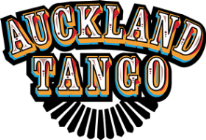Tango Mahi – Tanga of the Week – Ángel D’Agostino Orquesta Tipica featuring Angel Vargas.
Ángel D’Agostino was born in 1900 into a very musical Buenos Aires family. The family’s friends included leading local and touring international musicians and composers who would visit regularly and play music together. D’Agostino learnt to play the family piano as an infant, studied classical piano at a conservatory of music from a young age and was widely recognised as a prodigy before he became a teenager.
Together with his neighbour Juan D’Arienzo on violin, and other young friends, he started playing tango music in cafes and theatres, then developed into playing tango and jazz at private parties as a soloist and with other musicians and orquestas.
He set up his own orquesta as a 20 year old to play jazz and tango and over the next 20 years the line-ups comprising many of the best musicians of the time including Juan D’Arienzo, Anselmo Aieta, Anibal Troilo, Alberto Echagüe and Angel Vargas.
Over those two decades, D’Agostino also adopted a parallel life as a high society playboy, excelling as a milonguero and gambler, with a promise he exchanged with a close friend that neither of them would ever get married. In their 50s the friend broke his promise and married a 20 year old woman, resulting in D’Agostino never taking to him again. D’Agostino was still happily single when he died at age 91.
From 1940 to 1946 Angel Vargas became a permanent member of the D’Agostino orquesta and it was through those years that the orquesta was at its most popular for live performances and recordings, with the success being put down to:
1. the quality of Vargas’s charisma and singing,
2. the insistence of D’Agostino that the vocals to be treated as an additional instrument in the orquesta in ways that would sound seamless for tango dancers,
3. the contributions of bandoneon players Eduardo Del Piano and Alfredo Attadía as arrangers of the music.
From 1946 onwards D’Agostino would disband his orquestas then re-establish them for only short periods, his stated ratoinale being that he disliked being recognised in the street and just wanted to have the most incognito life possible. Some of these short term orquestas also made excellent recordings including several with Rubén Cané on vocals.
The songs chosen for the Tanda of the Week feature Angel Vargas:
1942 – “Todo Termino” – (i.e. “Everything is over”) – composed by D’Agostino bandoneonist Alfredo Attadía
1942 – “Ninguna” – (i.e. “None”)
1941 – “Ahora no me conocés” – (i.e. “Now you don’t know me”)
The first of two YouTube clips is of milongueros social dancing to “Ninguna” in 2016 with steps and sequences appropriate for a crowded venue, while keeping to the line of dance with pretty good musicality at the Obelisco milonga in Buenos Aires
The second of the clips is of maestros Carlitos Espinoza & Noelia Hurtado performing a demonstration dance to Todo Termino in 2017 adopting steps and sequences that are generally very simple but are executed with great precision and musicality.

